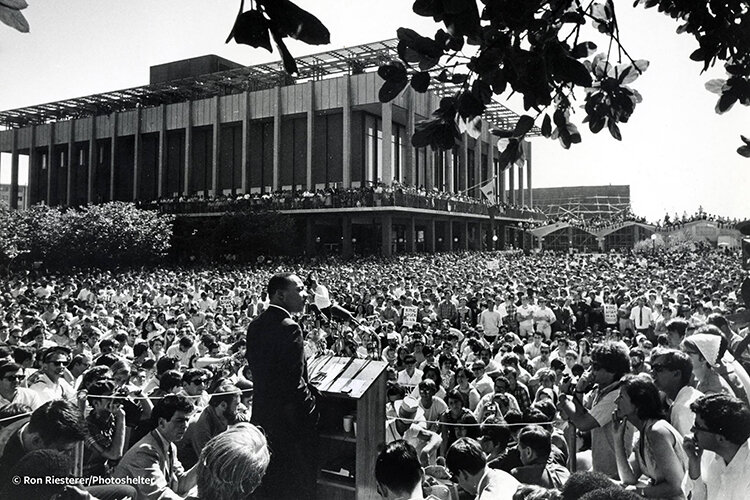Our Initiatives
2018-2020 HEALING, JUSTICE, AND BELONGING REPORT
Advancing Racially Just Cities For All
01
RELATIONSHIPS FOR RACIAL JUSTICE
Growing racial and income segregation of our neighborhoods and schools means that we don’t know one another. And if we don’t know one another, then we don’t care about each other’s pain. Just Cities convenes all of us to care about the people most impacted by racial injustice, centers their leadership, and moves the collective towards concrete solutions.
02
MULTIRACIAL LEADERSHIP DEVELOPMENT
Just Cities teaches and trains next gen planning and policy leaders to call forth our collective beauty and brilliance, raise consciousness of structural causes of injustice, and facilitate collective design and implementation of solutions.
Dr. King speaking at UC Berkeley, 1967
03
HOUSING FOR ALL
Housing in the US is treated as a market commodity rather than a fundamental human need, like public education or healthcare. Just Cities takes a comprehensive approach through prevention of harm, production of accessible housing, access for the most disenfranchised, and justice innovation.
04
UN Human Rights Standards
Many US cities have adopted international standards when it comes to climate change or economic development and trade. However, very few cities are following international human rights standards when it comes to the treatment of their most vulnerable residents. Just Cities and our partners believe that we do not need to reinvent the wheel when it comes to the policy and practice details of addressing the most pressing racial and social justice issues facing American cities. All we need to do is join the international community in authentically practicing human rights standards in addressing homelessness, poverty, displacement, policing, and growing educational and economic divides.
05
INCLUSIVE DEVELOPMENT
After decades of public and private disinvestment from cities, we are finally seeing resources and investments in urban areas but many of these efforts are done in ways that harm low-income communities of color. We believe it’s an imperative to invest in community-based development as the antidote to the current untenable situation of development with displacement.
06
PUBLIC FINANCING INNOVATION
Under Proposition 13, California cities are limited in revenue generation strategies and rely on regressive taxation strategies that hurt low income communities. Funding for safety net services that keep people housed were decimated by federal funding cuts and the demise of California Redevelopment. Instead, we must develop new innovative solutions to public financing woes.





